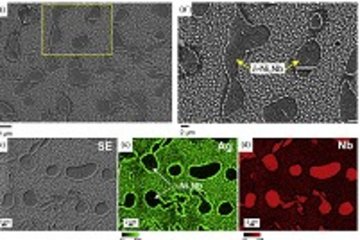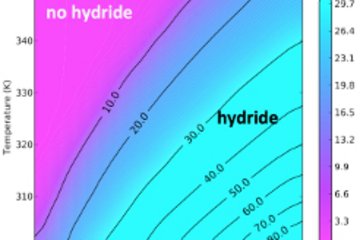All genres
381.
Talk
Metastable Defect Phase Diagrams as a road map for defect design. TMS Annual Meeting, Orlando, FL, USA (2024)
382.
Talk
Ab initio insights into atomistic processes at electrified solid/liquid interface. DPG Spring Meeting, Berlin, Germany (2024)
383.
Talk
Using ab initio calculations to unravel atomistic processes at electrified solid/ liquid interfaces. 63rd Sanibel Symposium, St. Augustine, FL, USA (2024)
384.
Talk
Discovery of Fundamental Reaction Mechanisms at Electrochemical Interfaces by Quantum Simulations. 63rd Sanibel Symposium, St. Augustine, FL, USA (2024)
385.
Talk
Boosting ab initio-based materials discovery by machine learning. MPCDF Workshop “High-performance computing, artificial intelligence, and data-intensive applications in the Max-Planck Society”, Schloss Ringberg, Tegernsee, Germany (2023)
386.
Talk
Boosting ab initio-based materials discovery by machine learning. AI MSE 2023 - Artificial Inteligence in Materials Science and Engineering, Saarbrücken, Germany (2023)
387.
Talk
Insights into electrochemical solid/liquid interfaces under potential control from first principles and atomistic calculations. TACO Colloquium, Universität Wien, Vienna, Austria (2023)
388.
Talk
Charged defects in semiconductors and beyond. 32nd International Conference on Defects in Semiconductors, Rehoboth Beach, DE, USA (2023)
389.
Talk
Navigating and exploiting the high-dimensional configuration spaces of high entropy alloys. The 11th International Conference on Multiscale Materials Modeling, Prague, Czech Republic (2023)
390.
Talk
Capturing the chemical complexity of HEAs by ab initio based modelling. CHEAC Summer School 2023 - High Entropy Materials and their properties, Metalskolen-Jørlunde, Denmark (2023)
391.
Talk
Insights into processes at electro-chemical solid/liquid interfaces under potential control from first principles calculations. 34th IUPAP Conference on Computational Physics 2023 (CCP2023) (Keynote talk), Kobe, Japan (2023)
392.
Talk
Experiment and Simulation Advances for atomic scale characterization using analytical field ion microscopy. Microscopy & Microanalysis 2023 (M&M 2023), Minneapolis, MN, USA (2023)
393.
Talk
Advanced Data Processing and Ab Initio Simulations for Insights into Atom Probe Tomography Correlations. Workshop on local probes of chemical bonding and atom probe tomography (RWTH), Aachen, Germany (2023)
394.
Talk
Electrochemistry in a periodic supercell. 2023 “Computational Materials Chemistry” Telluride Workshop, Telluride, CO, USA (2023)
395.
Talk
Construction and application of defect phase diagrams: Concepts and computational approaches. Thermec 2023, Vienna, Austria (2023)
396.
Talk
Controlling doping of electrocatalysts through engineering impurities. 2023 “Computational Materials Chemistry” Telluride Workshop, Telluride, CO, USA (2023)
397.
Talk
Ab initio computation of phase stability and interstitial alloying in bcc compositionally complex alloys. International Conference on High-Entropy Materials (ICHEM 2023), Knoxville, TN, USA (2023)
398.
Talk
Towards high throughput melting property calculations with ab initio accuracy aided by machine learning potential. CALPHAD L Conference, Cambridge, MA, USA (2023)
399.
Talk
Insights into Electrified Solid/Liquid Interfaces from Ab initio and Atomistic Molecular Dynamics Simulations. CECAM - Young Researchers' School on Theory and Simulation in Electrochemical Conversion Processes, Paris, France (2023)
400.
Talk
Utilizing chemical complexity in electrochemistry. Talk at Korea University, Asan Science Building, Seoul, Korea (2023)











